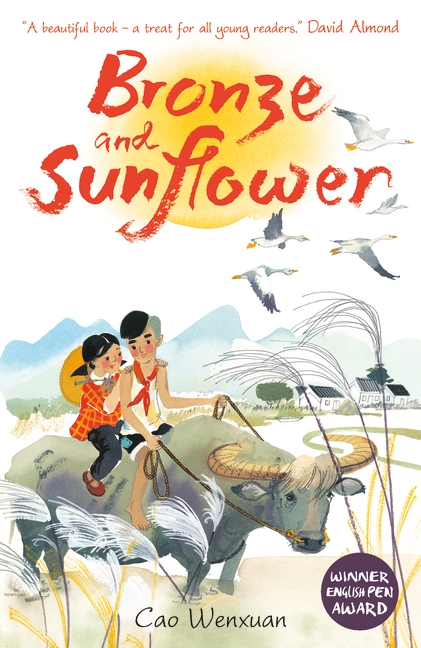In our last post, we pointed readers toward a memoir, a narrative history, a collection of essays on visual propaganda, and a website, which all addressed the “Cultural Revolution Decade” (1966-1976).
For this second installment on the occasion of the 50th anniversary of the start of that decade, I will highlight the value of two collections of stories set mainly or exclusively during the Cultural Revolution Decade, as well as (perhaps more surprisingly) a children’s book and a foray into speculative fiction, each of which has some scenes set during the same tumultuous period.
The Execution of Mayor Yin and Other Stories from the Great Proletarian Cultural Revolution
Chen Ruoxi, the author of this collection of short tales, was born in Taiwan and now lives there, but in these fictions she draws on the period that she spent living on the mainland during the 1960s and early 1970s. Ably translated by Nancy Ing and Howard Goldblatt, the English edition was first published in 1978 with an Introduction by Perry Link. Indiana University Press brought out a revised and updated edition in 2004, inspired to do so by the book’s enduring popularity as a classroom reading. I first encountered it as a student. Stories from the collection — especially “‘Chairman Mao is a Rotten Egg,’” which focuses on the way that even the chatter of small children could create political problems late in the Mao years — have stuck with me ever since.
Apologies Forthcoming: Stories Not about Mao
Xujun Eberlein, a past contributor to LARB, grew up in China but is now based in the US. This set of evocative and well turned sketches of ordinary life during the Cultural Revolution and its aftermath was originally written in English. Her present project, which she describes in a recent interview with Chris Buckley of the New York Times, focuses on her experiences in Sichuan during the Cultural Revolution. This work of nonfiction deals in part with her sister’s tragic death by drowning after jumping into a river to commemorate the anniversary of Mao’s famous swim in the Yangzi.
In this first part of an acclaimed and popular trilogy (a work written by Liu Cixin and skillfully translated into English by Ken Liu that won the Hugo Award), most of the action takes place after the Cultural Revolution, but crucial scenes take place during it. All I can say without spoiling the suspense is that a scientist’s disgust with what she sees going on around her in the time of the Red Guards leads her to react differently than she would have otherwise to a signal from a distant planet.
Cao Wenxuan is a recent winner of the prestigious Hans Christian Andersen Award for children’s fiction. Here is what Helen Wang, a past contributor to LARB who translated Bronze and Sunflower from Chinese into English, has to say about this celebrated children’s book, which has been translated into many languages:
The friendship between country-boy Bronze and city-girl Sunflower comes about when she moves with her artist-father to the cadre school across the river from Bronze’s village. The villagers and cadres visit each other, but the interaction is fairly superficial. The villagers don’t really know what a May 7th cadre school is, and don’t really care. They’re intrigued by things like fish-farming, and appreciate being able to borrow equipment, but can’t understand why the city people have left behind city comforts to come and work long hours in the fields and burn the midnight oil with political meetings. When Sunflower’s father dies, the cadre school can’t look after her, and Bronze’s family, the poorest in the village, takes her in. She stays with them long after the cadre school has closed and the cadres have returned to the city. Life in the countryside is hard and matter-of-fact. Natural disasters are catastrophic. When crops fail, there is simply no food. The relief boat (bringing grain) never arrives. Schooling and medical treatment are expensive. Hard work, integrity and love pull the family through. But, when a new mayor takes office in Sunflower’s old city and discovers that Sunflower was left behind in the village, he is determined to rectify the situation, honor her parents, bring her back to the city and personally see that she gets a good education and a decent future. However, the situation is blurred, there were no formal adoption papers, and Sunflower’s parents have to be persuaded to let her go.


